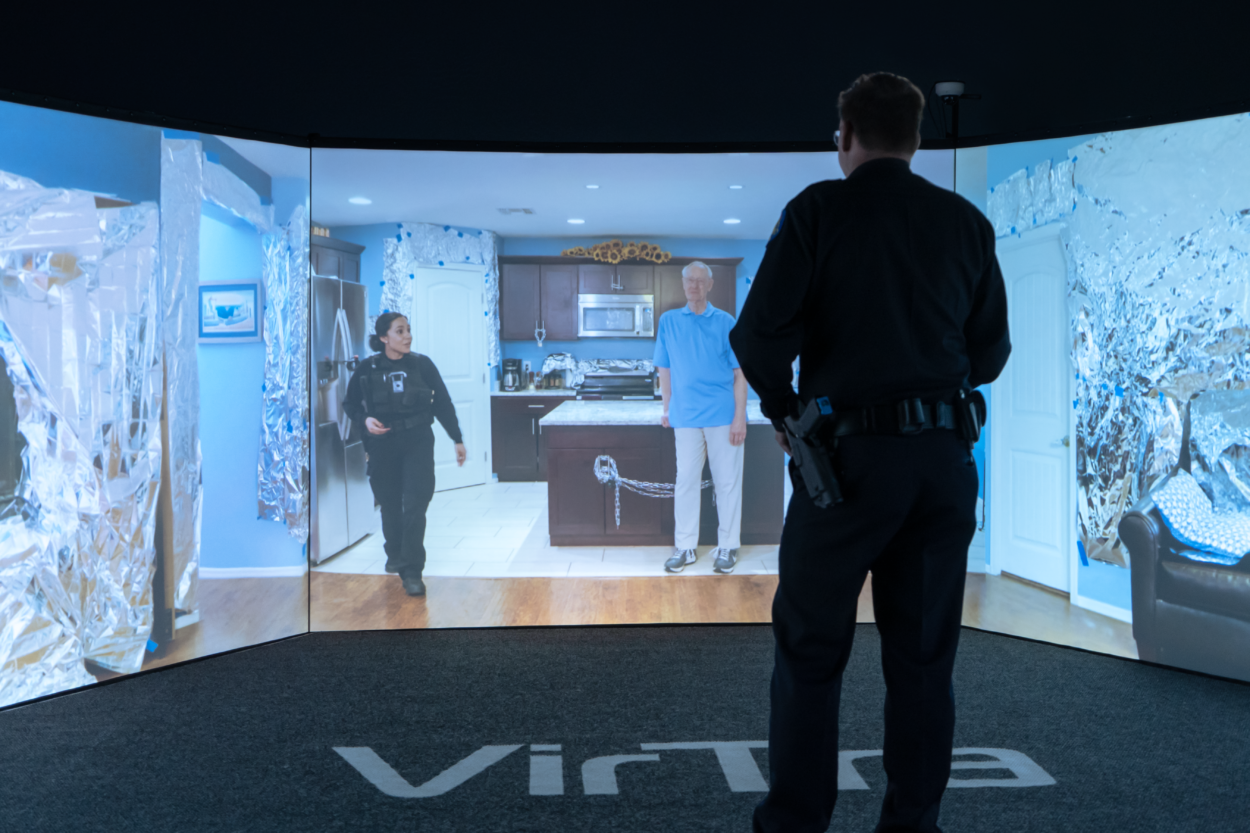
Law enforcement trainers should provide the most realistic use of force simulator training scenarios for their trainees. This requires building a lifelike environment, down to the weapons used and sounds heard. While these aspects allow students to be engaged physically, how will trainees be engaged mentally? Creating the perfect high-fidelity training environment is more than mimicking a setting—it is a balance of recreating both the physical and psychological state of a situation.
Physical Fidelity in Law Enforcement Training
Physical fidelity is the extent to which the conditions of the training program, such as equipment, tasks and surroundings, mirror those in performance situations (Werner & DeSimone, 2012). For example, consider the V-300® training simulator. Creating an environment with physical fidelity is as simple as uploading a scenario, then outfitting trainees with a real belt, gun (with a drop-in laser recoil kit for simulator training), and less lethal. Further realism can be achieved with V-Threat-Fire®, whose electric shock gives trainees pain repercussions.
Adding physical fidelity to training sessions provides immeasurable value to students as they learn how to navigate situations before going into the field. However, perfect physical fidelity in training is expensive to obtain as the costs rise with the realism of the surroundings.
Psychological Fidelity in Law Enforcement Training
As instructors are aware, training requires more than a realistic setting. This is where psychological fidelity comes into play. Known as the mental side of training, psychological fidelity refers to how closely the situation engages students in the same mental processes experienced in the field.
One of the most efficient ways to create a powerful psychological environment is through stress. An officer’s work is demanding and causes stress levels to rise during critical moments. This stress leads to a chemical change with an adrenaline response, which effects a person’s physical and cognitive abilities—namely reasoning, problem solving and effective speech.
By placing law enforcement trainees in situations such as simulated events that successfully mimic stressful psychological fidelity, students quickly learn how stress and other powerful emotions affect them and can inoculate these responses before entering the field.
Instructors can maximize their training by balancing physical and psychological fidelity. Take full advantage of training time and resources by training with our simulators. The corresponding scenarios offer psychological fidelity in emotional and stress-inducing situations, while providing psychological fidelity with realistic weapons and tools. For more information on use of force simulator training, please contact us.
Recently Published
Join Our Newsletter







